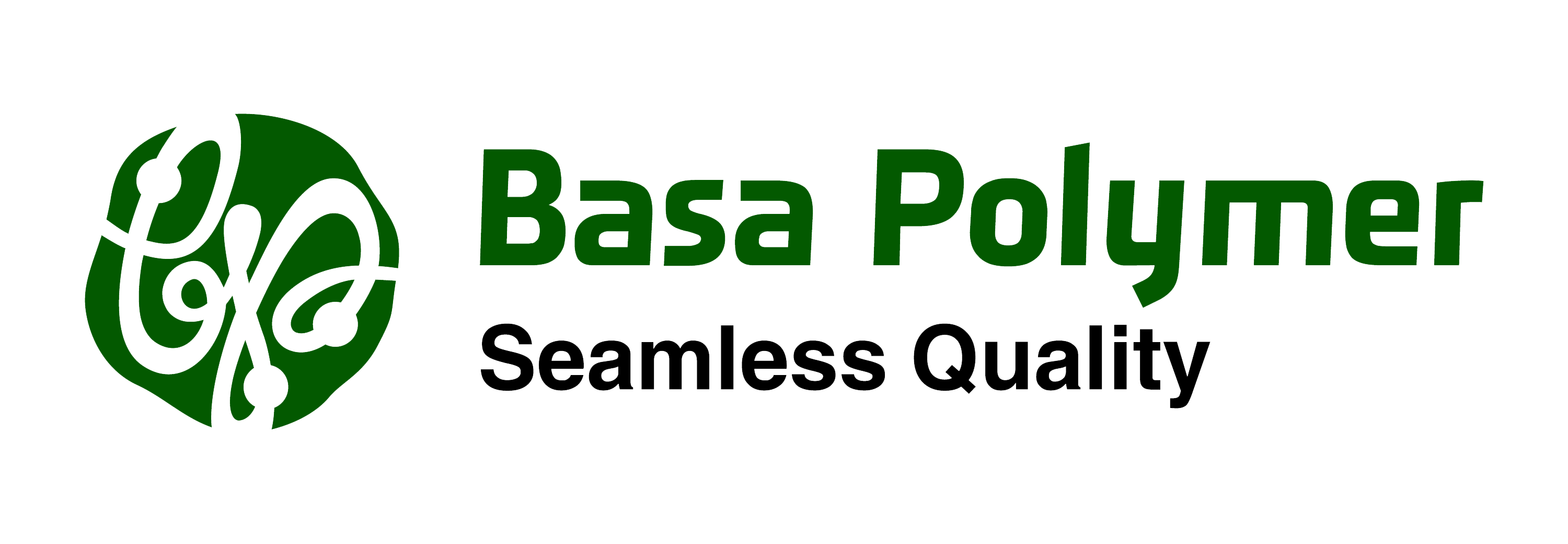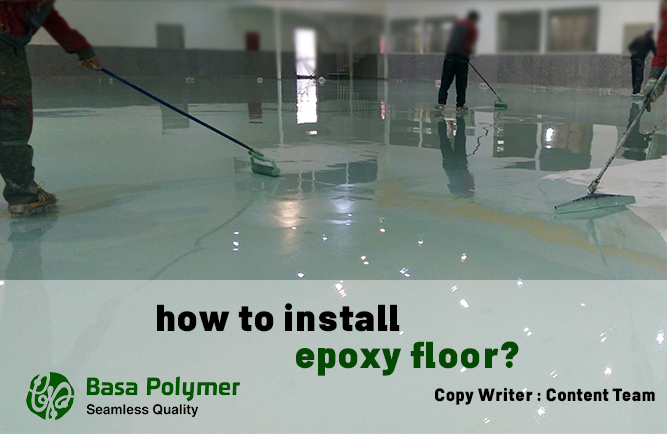Install Epoxy Flooring: Epoxy Flooring is a group of resin flooring whose formulation is designed based on epoxy resin and is installed in 3 to 6 different layers. In the implementation of epoxy flooring, the number of layers and the thickness of each layer depend on various factors, including the condition of the foundation, the use of the flooring, and the chemical substances in contact with the floor. The purpose of installing epoxy flooring is to seal the concrete floor, prevent dust, simple and easy to clean, create a hygienic, pleasant, and safe environment for employees, increase productivity, and reduce maintenance costs.
In this article, we tried to clearly and practically explain how to install epoxy flooring.
Implementation of Epoxy Flooring
Epoxy flooring is one of the most widely used flooring in various uses, including industrial, sanitary, commercial, parking places, etc.
According to its use, the basa Polymer flooring can be used in:
1) Pharmaceutical industries 2) Food and dairy industries 3) Oil, gas, and petrochemicals 4) Hospitals and health centers 5) Parking lots and commercial centers 6) Industrial centers and warehouses 7) Marine industries 8) Aviation industries 9) Residential uses and…
It is used and especially considering the conditions of the desired location, it is produced with special features such as antistatic and antibacterial in different designs and colors.
The important feature of epoxy resin flooring is its ability to be implemented in an integrated and seamless manner. The absence of seams and a ninety-degree angle with the wall makes it easy to wash and clean the floor in health environments such as hospitals and pharmacies.
Epoxy resin flooring protects its surface against wear and erosion, has high mechanical resistance and load tolerance, and is resistant to acid, alkali, and chemicals. The modern appearance, the variety of colors and flooring designs on the one hand, and the ability to paint, line, and mark the floor without changing the material, on the other hand, have attracted the attention of interior architects and companies.
Also, the optimal preparation of raw materials according to the size has reduced polymer waste, less damage to the environment, and reduced side costs for employers.
What layers are needed to Install Epoxy Flooring?
installing The epoxy flooring implementation system consists of different layers, the most important of which include:
Primer, intermediate, cover, and final varnish. The final quality of the flooring system depends on the characteristics of each of these products. In order to implement this flooring, at least three layers (primer, intermediate, and coating) are needed.
1- Epoxy primer
The first applied layer, for Install Epoxy Flooring is used to seal and create more adhesion to the substrate, and is the least thick, is the primer. Primers are available in different types and depending on the raw materials, they offer different adhesions.
2- Epoxy intermediate:
This layer is used to smooth and fill possible cracks and increase the strength of the flooring system.
3- Epoxy coating:
In addition to determining the final appearance of the flooring, this layer determines surface properties such as hardness and resistance to wear, water, chemicals, etc.
4- Epoxy final varnish:
The last layer of your floor covering is transparent and applied as a protective coating in the final layer and is available in two types, matte or polished.
How to install Epoxy Flooring
The installation of epoxy resin flooring should be done by experienced professionals in order to have the necessary quality in terms of appearance, resistance, and durability.
In general, its installation and implementation on all types of surfaces (concrete, stone, ceramic, tile, etc.) is done in 4 steps. Before implementation, it must be ensured that the floor is not wet.
In the case of concreting, the installation of flooring should be done after 30 days.
Epoxy Flooring Installation Steps
1. Surface preparation
Install Epoxy Flooring: Epoxy floor installation begins with the complete evacuation of the room. Then the room is completely swept. If there are any cracks, seams, or damage, repairs will be done. The concrete surface must be cleaned of any type of grease, oil, or solvent using a suitable detergent. These materials have the potential to reduce the adhesion of the flooring to the concrete, so they must be thoroughly cleaned. Finally, flooring is done to increase adhesion.
2. Apply primer
Primer is used before applying epoxy flooring, and the purpose of its use is to ensure good adhesion of the flooring to the surface below. The primer has a low viscosity is completely diluted and penetrates well into the concrete. Epoxy primer is applied to the surface with a wool roller after preparing the bottom surface. Proper penetration of the primer into the substructure and concrete is very important in achieving quality flooring.
3. Mixing of Materials for Install Epoxy Flooring
Epoxy paint buckets contain two main components (resin) and a curing agent (hardener). First, the first and second components are mixed separately, then we add the second component to the bucket containing the main color. Mixing operations Using an electric mixer at medium speed, we mix for two minutes until it is completely homogeneous. After finishing the mixing, the installation of flooring should be done immediately! begin. Because if pot life is passed, the materials will gel.
4. Middle Layer
The produced mixture should be applied to the surface with a smooth trowel or a comb. Choosing the type of lace depends on the amount of material used. After applying the middle layer, wait for the layer to dry completely. After drying, the possible problems of the floor (presence of surface waves, holes, or cracks) are checked so that, if necessary, the middle layer is applied again on the surface.
5. The final layer of the system
Again, it is emphasized that no cracks or holes should be left on the surface before applying the final layer of flooring. The installation of the final layer, depending on its type, will be carried out on the prepared surface using a combed squeegee and an air-absorbing roller (self-leveling floor covering) or a wool roller (floor covering). The final surface can be orange peel or polished.


